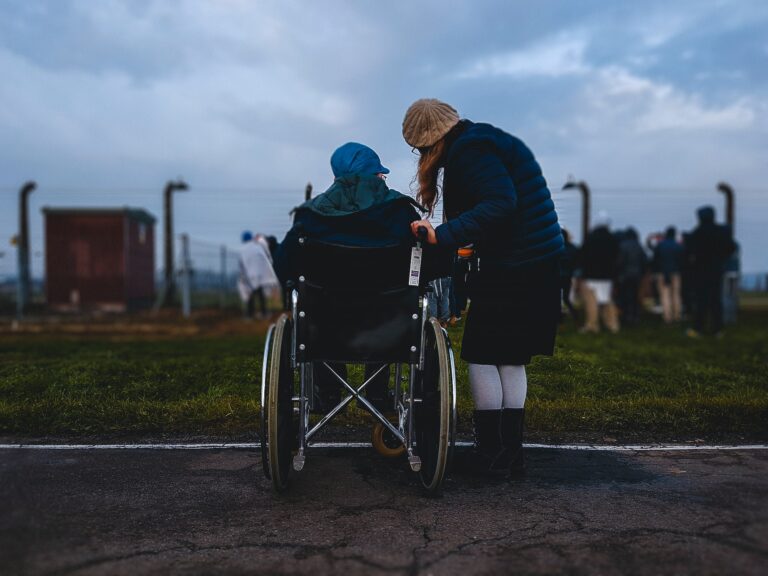
Chronic inflammatory demyelinating polyneuropathy (CIDP) is an autoimmune disorder that occurs when swelling caused by inflamed nerve roots and peripheral nerves destroys the myelin sheath (the protective covering around nerves).
As a result, nerve fibers become damaged, and the body’s ability to send signals to the brain slows significantly.
This rare neurological disorder affects the nervous system, causing numbness, pain, slow reflexes, and weakness in the limbs. Untreated, it can affect motor function in the arms and legs, and in some cases, cause severe nerve damage.
Speak to a Specialist:
CIDP Copay AssistanceWhat Causes CIDP?
The exact triggers of CIDP are currently unknown. However, researchers believe the condition is autoimmune-related. The body perceives the myelin sheath as foreign and begins attacking it. CIDP is more commonly found in people between the ages of 50 and 60, and men are twice as likely to develop this rare disease. However, people of any age can develop this condition at any time.
What Are the Symptoms of CIDP?

Common CIDP symptoms include:
- Paralyzing numbness
- Tingling and pain in the extremities
- Pins and needles sensation searing through the limbs
- Burning or stabbing pain
- Lack of sensation
- Physical weakness and fatigue
- Problems with balance and coordination
- Loss of mobility
- Loss of reflexes
- Loss of muscle mass
- Abnormal walking
- Difficulty bending over
- Fatigue
People diagnosed with CIDP may have difficulty:
- Walking or climbing stairs
- Lifting or carrying objects
- Standing for a long time
- Performing simple activities like buttoning, clothing, or writing
- Maintaining balance
- Preventing falls
It is important to note that these are not isolated symptoms but chronic conditions that last 8 weeks or longer and worsen over time.
Get Financial Assistance
Symptoms usually present on both sides of the body and often affect your arms and legs. Symptoms can be mild, moderate, or severe and can change over time.
Disease Progression
CIDP develops slowly over a period of time (at least 8 weeks). Disease progression is different for each individual but follows three general patterns:
- Progressive: Symptoms grow worse over a period of time without any improvement.
- Recurrent: Symptoms occur and then go away. This can be a cyclic pattern with various durations between episodes.
- Monophasic: Symptoms present for 1 to 3 years, then go away permanently.
Diagnosis of CIDP
CIDP is a rare illness that is difficult to diagnose. At first, doctors may suspect Guillain-Barre syndrome (GBS) due to its similarity of symptoms. However, if symptoms last more than 8 weeks, providers may suspect CIDP.
To diagnose CIDP, providers will review your medical history and may conduct a number of tests, which can include:
- Nerve conduction studies and electromyography to detect myelin sheath destruction and evaluate the health and function of your nerves
- Blood and urine tests to rule out the possibility that symptoms are caused by other conditions like diabetes, thyroid disease, and vitamin deficiency, among many others
- Lumbar puncture (spinal tap), where cerebrospinal fluid is collected from your lower back to look for abnormal protein levels associated with CIDP
- MRI to detect if there is nerve root enlargement and inflammation
Without treatment, one in three patients will eventually need a wheelchair. For this reason, early diagnosis is critical for effectively managing CIDP.
Treatment for CIDP
There are three main first-line treatments for CIDP:
- Intravenous Immunoglobulin (IVIG): In this treatment, healthy antibodies collected from thousands of donors are infused into the patient.
- Plasmapheresis (Plasma Exchange): A machine separates the plasma from your blood, removes harmful antibodies, and then returns the blood and plasma to your body.
- Corticosteroids: Medications like prednisone are used to decrease inflammation. Although corticosteroids are effective, they have many side effects and could prove to be problematic if they are used long-term.
Get Copay Assistance Now
CIDP vs. GBS
Guillain-Barre syndrome attacks the myelin sheath in a way similar to CIDP. The two share many symptoms; however, there are some key differences:

- GBS symptoms develop much more quickly, in a few days or weeks.
- GBS can affect breathing, which can cause respiratory arrest.
- GBS is usually preceded by an infection, whereas CIDP usually is not.
Unlike GBS, CIDP is a chronic condition where worsening symptoms develop over an extended period of time.
Further reading: GBS vs. CIDP: What is the Difference?
Next Steps
If you are concerned that you may have CIDP, schedule a doctor’s visit right away and request to be tested.
Since CIDP is rare and difficult to diagnose, you may want to document your CIDP symptoms and how they progress over time. Your doctor may need this information to assess your situation accurately.
The sooner you seek help, the more likely you are to prevent irreversible nerve damage.












